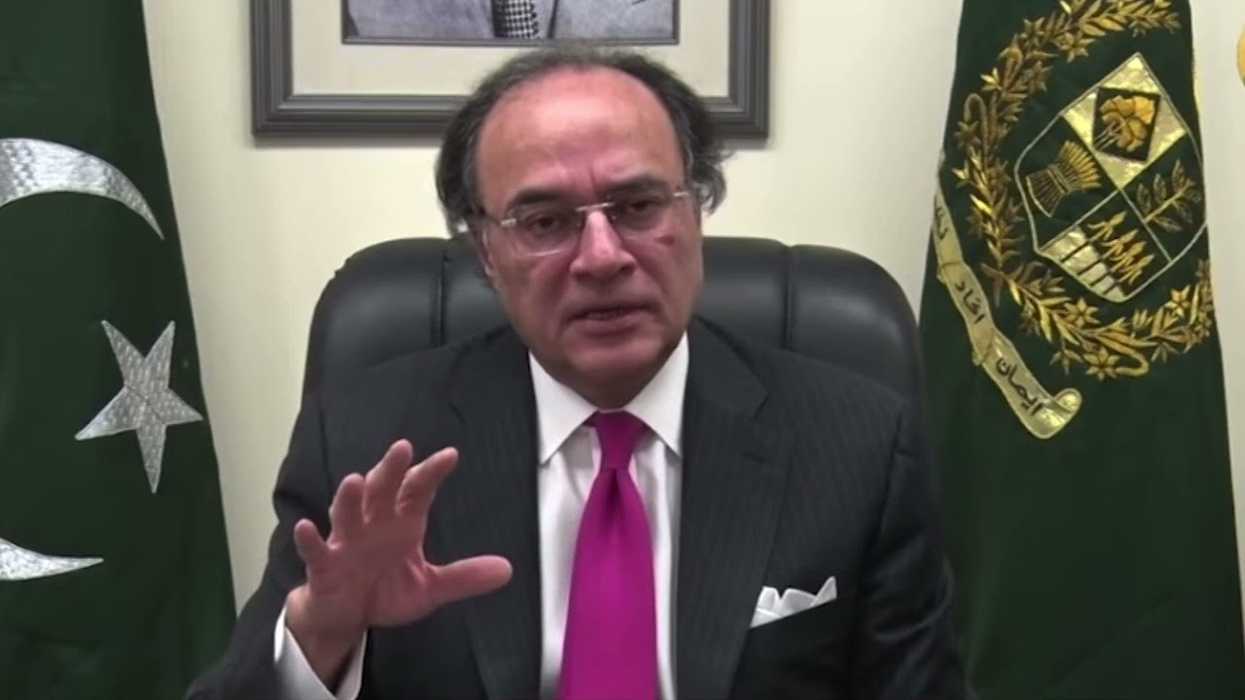Ongoing protests costing Pakistan PKR 190 billion a day: Finance Minister
Chinese killed in Karachi worked for IPPs with which government negotiating loan rescheduling and tariff easing, he says
Business Desk
The Business Desk tracks economic trends, market movements, and business developments, offering analysis of both local and global financial news.
Monetary easing to continue as inflation eases to 44-month low: Finance Minister
Pakistan's Federal Minister for Finance and Revenue Senator Muhammad Aurangzeb stated on Tuesday that the ongoing protests and agitation are costing the country PKR 190 billion ($679 million) per day.
This loss encompasses GDP, revenue, exports, and law enforcement costs, based on a GDP of PKR 32 trillion for the second quarter of 2024. Pakistan's annual GDP stands at PKR 124 trillion.
Aurangzeb mentioned that the economy is on the right track with a stabilized rupee, declining interest rates, and reduced KIBOR rates benefiting all borrowers. He noted that monetary easing will continue following a 44-month-low inflation rate of 6.9% in September.
The finance minister also condemned the terrorist attack in Karachi that killed Chinese engineers. He highlighted that these engineers were working with Independent Power Producers (IPPs), with whom the government is negotiating loan rescheduling and tariff easing.
The minister reaffirmed the government's commitment to structural reforms in key economic sectors, including energy, state-owned enterprises (SOEs), privatization, taxation, and government rightsizing.
Earlier, speaking to a delegation of investors led by Barclays at the Finance Division, the minister emphasized the importance of shedding Pakistan's image as a "single-tranche country" and implementing the structural benchmarks agreed upon with the International Monetary Fund (IMF) to ensure lasting macroeconomic stability.
During the meeting, the minister outlined various policy interventions and initiatives undertaken over the past year to reform the economy. He highlighted significant improvements in key economic indicators such as twin deficits, currency stability, foreign exchange reserves, and inflation, which he described as a major focus throughout the year.
Senator Aurangzeb attributed the current macroeconomic stability to the successful completion of a nine-month IMF Stand-by Agreement, initiated by Prime Minister Shehbaz Sharif and executed with discipline by the caretaker administration. This agreement has paved the way for a more extensive and longer-term Extended Fund Facility (EFF) to solidify macroeconomic stability and implement necessary structural reforms.
One notable achievement of this stability, according to the Minister, was Pakistan's ability to clear Letters of Credit and import backlogs by May and June of the previous year, as well as settle nearly $2 billion in profit and dividend payments to foreign investors. He noted that the new fiscal year began on a positive note, with continued macroeconomic stability in the first quarter, driven by strong remittances, healthy Roshan Digital Account (RDA) flows, and positive export performance.








Comments
See what people are discussing